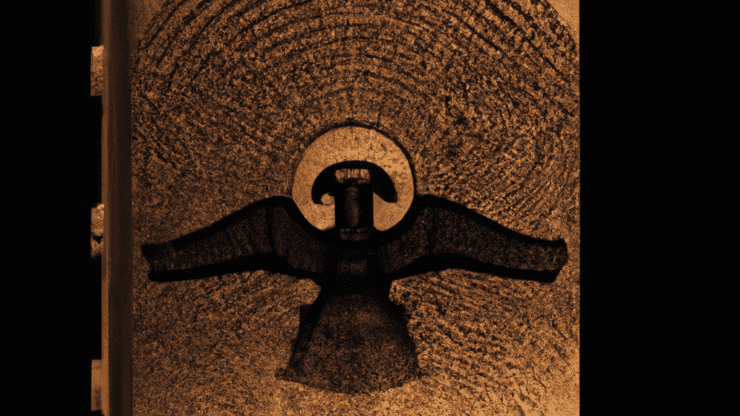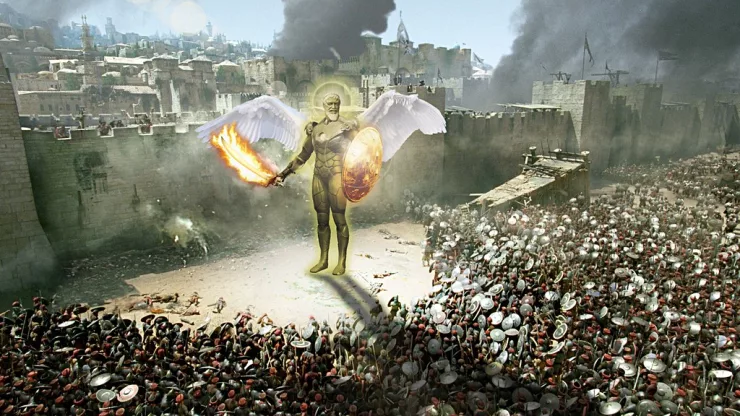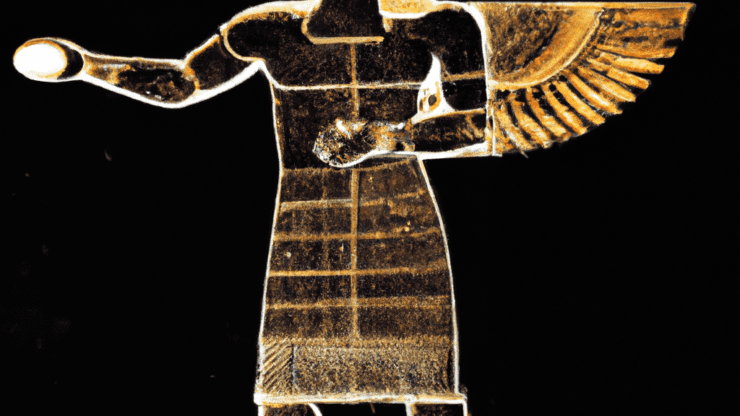The mysteries of the ancient world continue to captivate our imagination, and one such enigma that has intrigued scholars and enthusiasts alike is the connection between the Anunnaki and the Bible.
The mention of the Anunnaki in the Bible has sparked debates and speculation regarding their role in human history and their significance within the context of religious texts.
In this article, we will delve into the historical background of the Anunnaki, explore their presence in various mythologies, and examine their potential influence on biblical texts.
Jump to Section
Introduction
The Anunnaki, an ancient extraterrestrial race believed to have visited Earth in the distant past, have become a subject of fascination and intrigue.
The mention of these beings in ancient texts, including the Bible, has given rise to numerous theories regarding their existence and influence on human civilization.
In this article, we will embark on a journey to uncover the hidden secrets and connections between the Anunnaki and the Bible, shedding light on their significance within the realm of mythology and religion.
Historical Background of the Anunnaki
To understand the connection between the Anunnaki and the Bible, we must first delve into their origins and historical background. The Anunnaki are believed to have originated in ancient Mesopotamia, one of the cradles of civilization.
In various Mesopotamian mythologies, they are depicted as powerful deities who played a significant role in shaping the world and the fate of humanity.
These divine beings were associated with various aspects of life, such as fertility, creation, and the natural elements.
They were believed to have descended from the heavens and established themselves as rulers and protectors of humanity.
Their presence in ancient civilizations extended beyond Mesopotamia, as they made their way into the mythologies of neighboring regions, including Egypt.
Anunnaki in Mesopotamian Mythology
In Mesopotamian mythology, the Anunnaki held a prominent position as divine beings who controlled the affairs of gods and humans.
They were often depicted as a group of deities, with their leader being Anu, the god of the sky.
Texts such as the "Enuma Elish" and the "Epic of Gilgamesh" shed light on the interactions between the Anunnaki and other gods, as well as their involvement in human affairs.
According to these narratives, the Anunnaki played a crucial role in the creation of humanity and the establishment of civilization.
They were seen as both benevolent and capricious, capable of bestowing blessings or unleashing wrath upon humanity.
Their presence in Mesopotamian mythology underscores their significance within the religious and cultural framework of the ancient world.
Anunnaki in Egyptian Mythology
While the Anunnaki are primarily associated with Mesopotamian mythology, there are intriguing connections between these divine beings and Egyptian mythology.
Both belief systems share common themes and deities, suggesting a potential cultural exchange or influence between the two civilizations.
Archaeological findings and textual evidence indicate that the ancient Egyptians held a deep fascination with celestial beings and their impact on human existence.
The existence of deities like Thoth, who was associated with knowledge and wisdom, bears resemblance to the wisdom-bringing Anunnaki.
Additionally, the concept of deities descending from the heavens to interact with humans is present in both Egyptian and Mesopotamian mythologies.
The Anunnaki in Biblical Texts
Now, let us turn our attention to the biblical texts and their references to the Anunnaki.
While the term "Anunnaki" itself may not be explicitly mentioned in the Bible, there are passages that allude to the presence of divine beings who interacted with humanity.
One such example can be found in the book of Genesis, where the Nephilim are mentioned. These Nephilim, described as "sons of God," have been subject to various interpretations.
Some scholars propose that they could be connected to the Anunnaki, representing a hybrid race resulting from the union between divine beings and humans.
However, alternative interpretations exist, and the exact nature of the Nephilim remains a topic of debate.
Furthermore, the flood narrative in the Bible, particularly the story of Noah’s Ark, shares similarities with flood myths found in various ancient cultures.
These stories often feature divine beings warning select individuals about an impending cataclysm, echoing the Anunnaki’s involvement in the flood myths of Mesopotamia.
Unveiling Ancient Secrets: Anunnaki’s Influence
The potential influence of the Anunnaki on human development and civilization has sparked speculation and controversy.
Some theorists propose that the Anunnaki imparted advanced knowledge, technologies, and teachings to humanity, which laid the foundation for ancient civilizations and propelled human progress.
These theories often delve into topics such as genetic manipulation, ancient astronaut theories, and the acquisition of forbidden knowledge.
While these ideas are intriguing, it is important to approach them with a critical mindset and evaluate the evidence and reasoning behind such claims.
Table: Anunnaki’s Alleged Contributions to Human Civilization
| Area of Influence | Alleged Contributions |
|---|---|
| Science and Technology | Advanced knowledge in various fields |
| Architecture | Construction techniques and monumental structures |
| Agriculture | Advanced farming methods and crop cultivation |
| Religion | The establishment of religious systems and rituals |
| Government | Political and administrative systems |
| Writing | The development of writing systems and languages |
Debunking Myths: Anunnaki and Alien Theories
The connection between the Anunnaki and extraterrestrial theories has given rise to various conspiracy theories and sensational claims. Some propose that the Anunnaki were ancient astronauts or aliens who visited Earth in the remote past.
While these ideas may capture the imagination, it is crucial to approach them with a critical lens and consider the lack of scientific evidence supporting such claims.
It is important to distinguish between the realms of mythology, religion, and scientific inquiry.
While ancient texts and mythologies provide a glimpse into the beliefs and cosmologies of ancient civilizations, scientific evidence requires rigorous investigation and empirical verification.
Conclusion
In conclusion, the connection between the Anunnaki and the Bible is a topic that continues to intrigue and fascinate.
The historical background of the Anunnaki, their presence in various mythologies, and their potential influence on biblical texts offer a rich tapestry for exploration and interpretation.
While it is impossible to definitively prove or disprove the existence and influence of the Anunnaki, their mention in ancient texts and their role in mythology provide valuable insights into the beliefs and cultural dynamics of ancient civilizations.
By delving into these ancient mysteries, we gain a deeper understanding of our shared human history and the diverse tapestry of human belief systems.
We encourage further research and exploration of this topic, recognizing that the quest for knowledge and understanding is an ongoing journey that continues to shape our perception of the past and our place in the world.
Greetings fellow space travelers, I am Draco Blaze, creator of Alienated Media who is passionate about exploring the unknown and writing about my experiences with extraterrestrial life.
My focus is on alien encounters and creating thought-provoking sci-fi short stories that transport readers to new worlds and realities.
Feel free to contact me at [email protected].





